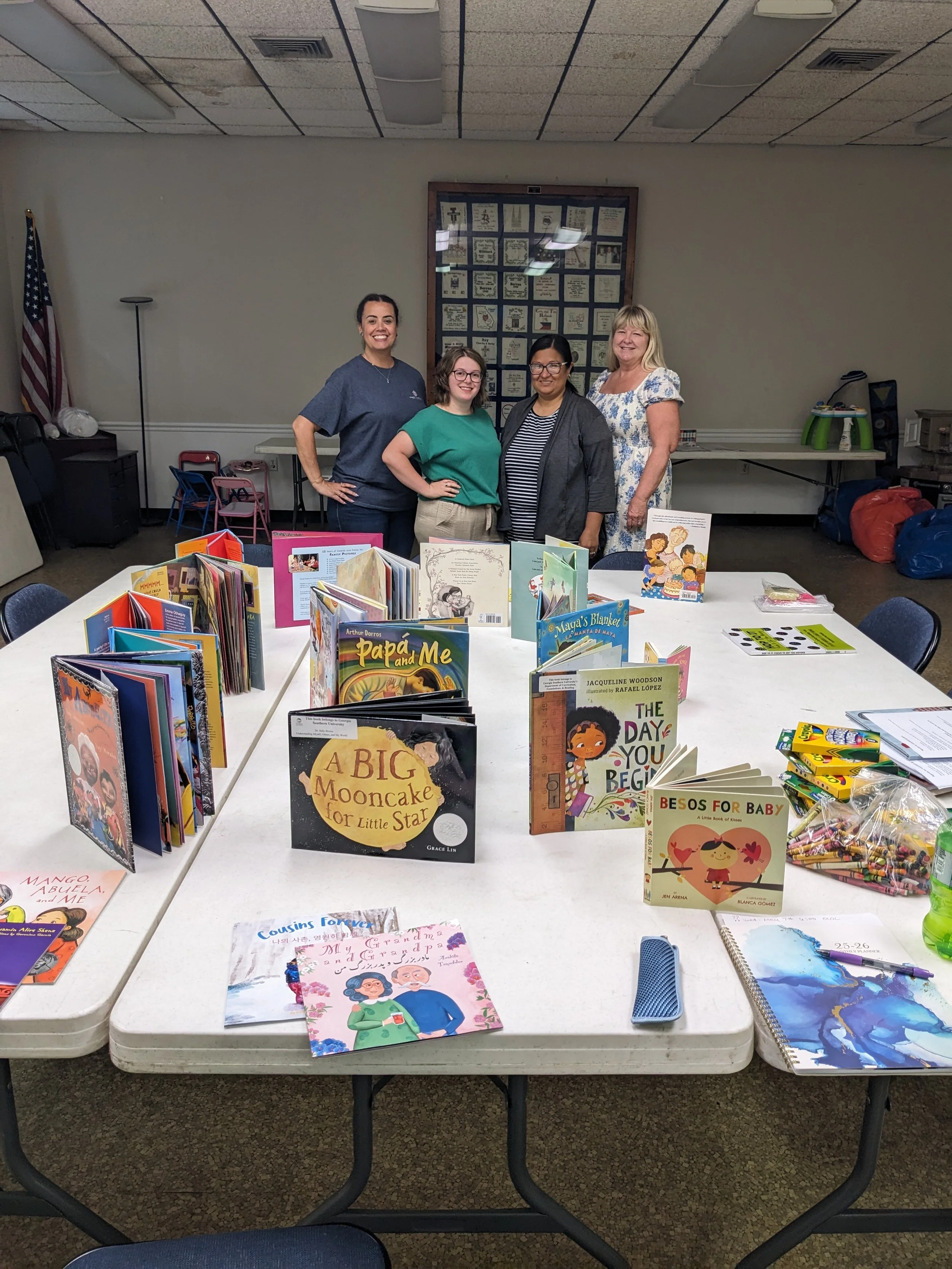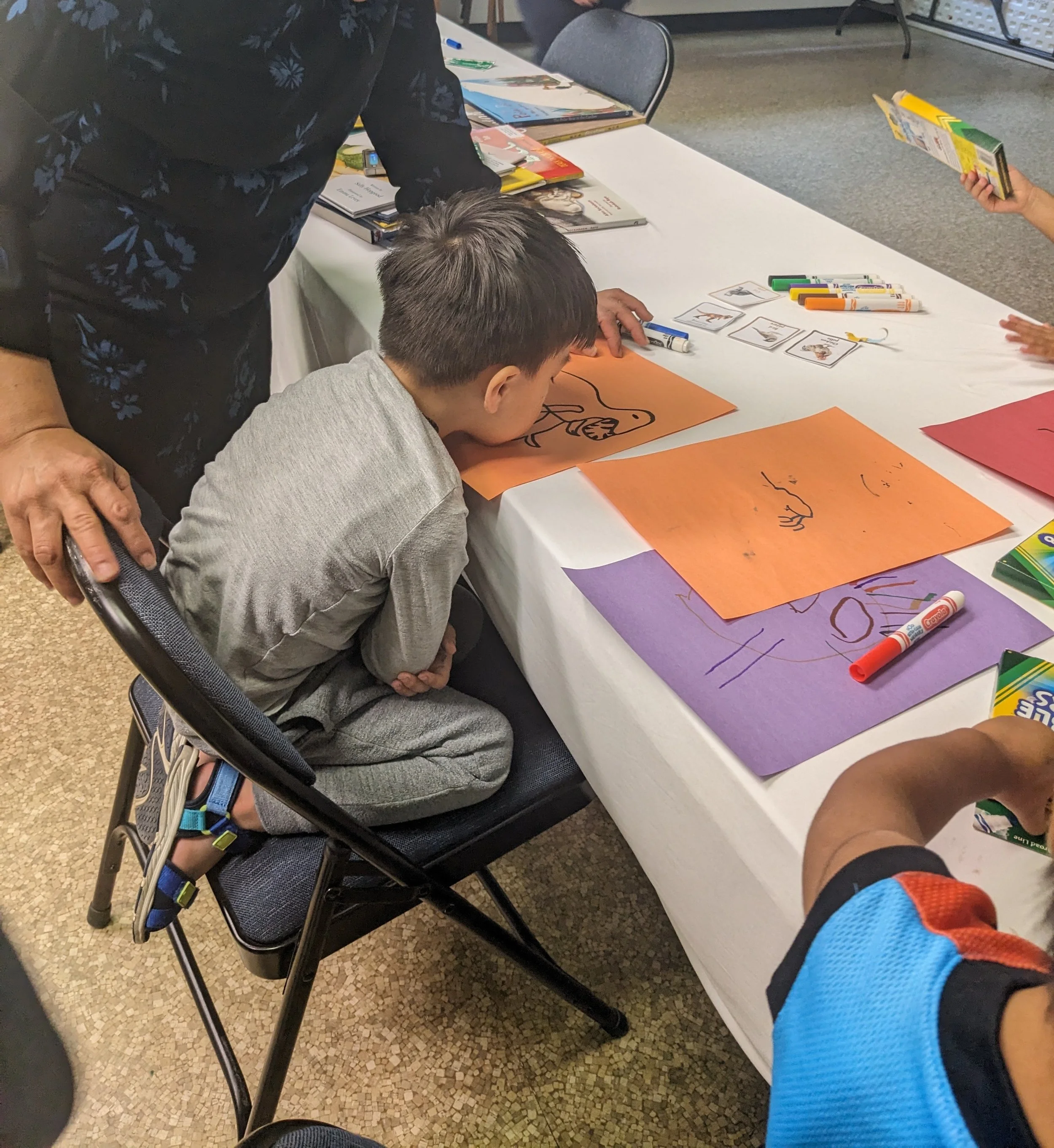Hands-on experiences with families can better prepare pre-service teachers
Our implementation research grantees at Georgia Southern University are shaking up what it means to prepare teachers for the reality within early childhood classrooms.
Through PAGES+ Literacy Initiative reading rooms, pre-service teachers are connecting with community leaders, families, and young children—giving them valuable, real-world experience with scenarios they can’t get in the classroom.
“Learning is theoretical when you're reading from a book, but when you see it in action, it's a powerful piece of learning for our students who are participating,” said grantee and Professor of English Learner Education at Georgia Southern Dr. Alisa Leckie. “The light bulbs that are going off are almost visible.”
Dr. Sally Brown, right, after setting up a temporary reading room.
The PAGES+ Literacy Initiative brings community leaders, pre-service teachers, and families together in Savannah, Georgia and Chatham County community spaces. Pre-service teachers and community leaders co-plan and co-facilitate what are called “reading rooms,” where they focus on language rich activities and literacy development for children.
“When we get families in reading rooms, we really see language richness,” said Professor of Literacy Education Dr. Sally Brown. “We see mothers and fathers talking with their kids about stories and encouraging them. There’s joy as the children learn new vocabulary, in multiple languages for many families.”
Reading rooms follow a similar pattern each time, but activities are changed according to the weekly theme, children’s ages, and their interests. Families browse books and engage in collaborative dialogue while reading together, then participate in a story read-aloud with Q&A. From there, they explore a movement activity, games, and crafts designed for language development through connection.
“This family work will help Georgia Southern produce more prepared teachers,” Brown said.
Reading rooms provide a place for pre-service teachers to interact directly with parents and their children, experiences they rarely get in the classroom. Though they regularly receive constructive feedback from Brown and Leckie, teachers in this environment are free from both formal evaluation and classroom behavior management challenges.
“Having a safe place to practice helps them build confidence in a new skill set they might not have had the opportunity to develop otherwise,” Leckie said. “Real-world applications in an environment like this make them stronger language and literacy teachers.”
What Brown and Leckie didn’t anticipate was the non-language based transformative shifts they would see in participating parents and children.
A child doing a drawing activity. Socialization was an unexpected benefit of the reading rooms.
One three-year-old was not ready to attend preschool and would not leave his mother’s side. His anxiety about starting school was palpable. After six reading room sessions, he blossomed.
“He’s like a different little boy,” Brown said. “He’s so independent, he gets his own supplies, and he decides what he wants to do. His mom is now saying he’s ready for school.”
While preparing better teachers, PAGES+ Literacy Initiative is transforming literacy for Savannah and Chatham County one meaningful interaction at a time.
“I believe in the power of a teacher,” Brown said. “The impact is there, and that pushes me to refine teachers’ practices so they can teach literacy in a way that respects children and gives them skills they need.”
The PAGES+ Literacy Initiative: Parents and Generations Engaging Through Stories and Language project is funded by the Deal Center’s Implementation Research Grant Initiative.
The Deal Center is a special funding initiative created by the Office of the Governor in 2017. The center is intended to improve reading outcomes for Georgia’s children and is housed by Georgia College & State University.



